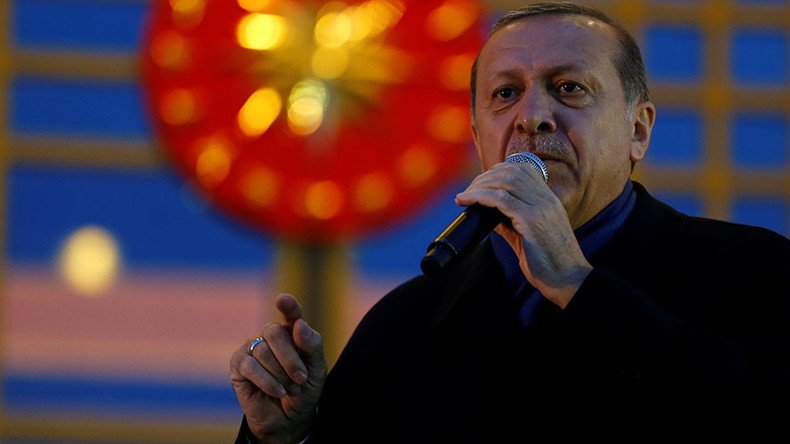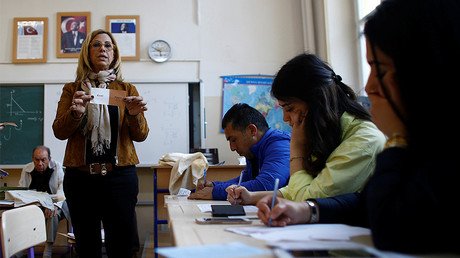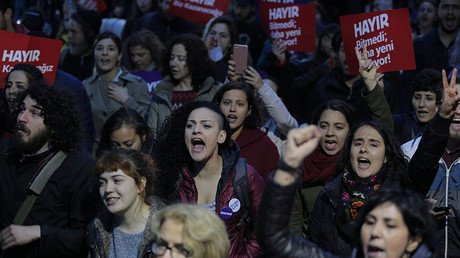European Court of Human Rights cannot challenge Turkish referendum results – Erdogan

Challenging the results of Turkey’s referendum that extended the president’s powers is well beyond the jurisdiction of the European Court of Human Rights (ECHR), Turkish President Recep Tayyip Erdogan said, adding that the issue is “over.”
Erdogan stressed that Turkish Supreme Election Board’s (YSK) decision to reject referendum annulment requests filed by a number of opposition parties and some ordinary citizens is the final one and cannot be challenged by any other institution.
“This issue is over,” he said, as cited by Turkish daily Hurriyet. He particularly stressed that the matter is neither within the authority of the Turkish Constitutional Court nor within the jurisdiction of the European Court of Human Rights (ECHR).
"This is nothing but an attempt to make an election with 86 percent participation into a controversial matter," he told the Turkish A Haber broadcaster, as cited by Reuters. The president’s comments came after the opposition vowed to take “every legal step” to annul the results of the referendum they claim were based on “numerous irregularities.”
Earlier on the same day, Turkey’s Justice Minister Bekir Bozdag also rejected any possibility of the referendum results to be challenged either by the Turkish Constitutional Court or the ECHR.
"The Constitutional Court has no right and authority to review the referendum according to the Constitution and the conventions that Turkey is party to," Bozdag told A Haber, adding that the Turkish constitution “explicitly rules that the decisions of the Supreme Election Board (YSK) are final and no authority can be resorted to against these decisions.”
"Even if such an application is made, the Constitutional Court has no choice but to reject it," he said. The minister went on to say that those willing to annul the results could “also apply to the ECHR, but [they] cannot achieve a result there either, because the agreements Turkey signed do not give parties the right to apply."
He also once again criticized European election observers, who questioned the referendum procedures, by calling their reports biased and lacking fairness and objectivity. "Those who prepared this report are partial," he said, as reported by Reuters.
The comments both from the president and the minister came the next day after Turkey’s Supreme Election Board (YSK) rejected appeals to annul the results of the referendum filed by the opposition Republican People's Party (CHP), the Peoples' Democratic Party (HDP) and the Patriotic Party (Vatan Partisi).
Following this decision, the CHP said it would not recognize the result of the plebiscite and would “explore every opportunity” to overrun it, mentioning in particular that it could file a complaint to the Turkish Constitutional Court and the ECHR.
The April 16 vote had an 85 percent turnout, with 51.4 percent voting ‘yes’ to allow for constitutional changes which will give Erdogan sweeping powers when it comes to national matters of legislation, finance, appointments and civil society.
The changes would particularly allow Erdogan to appoint and fire ministers, name half the members of Turkey's highest judicial body, hold the leadership of a political party while in office, and lead the country for the next 12 years, if he wins future elections.
The new system outlined under the constitutional changes will take full effect at the next election, slated for November 2019. However, numerous changes are expected to be implemented much sooner.















